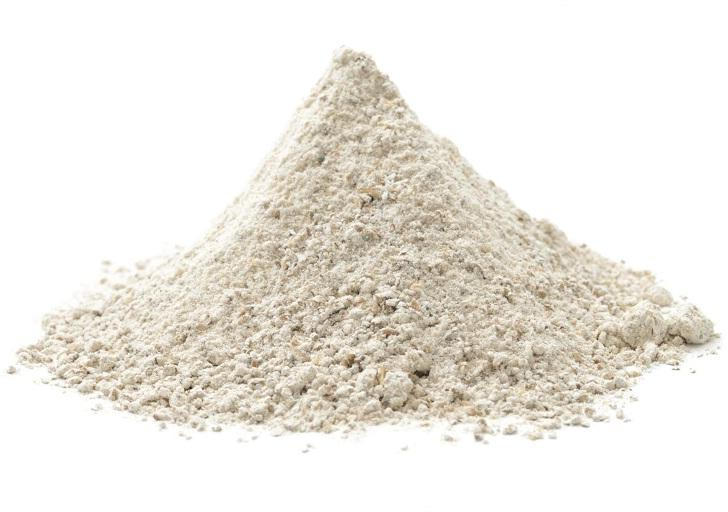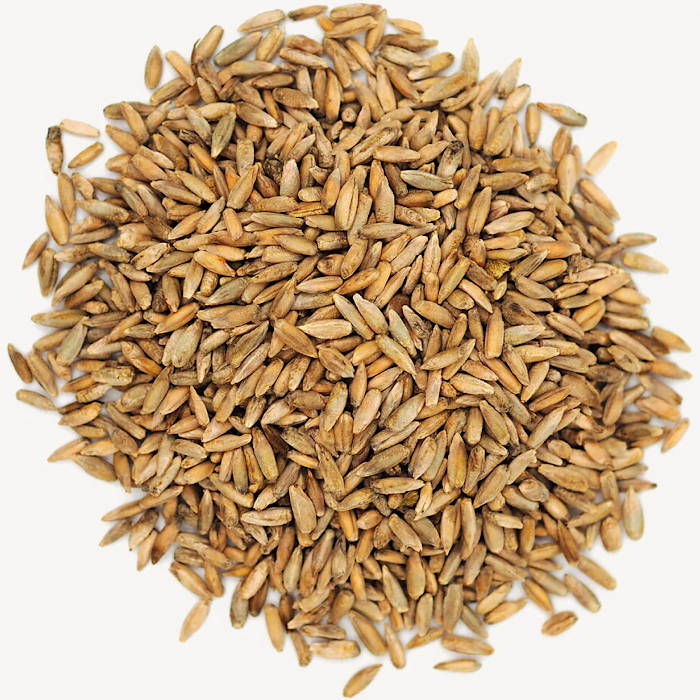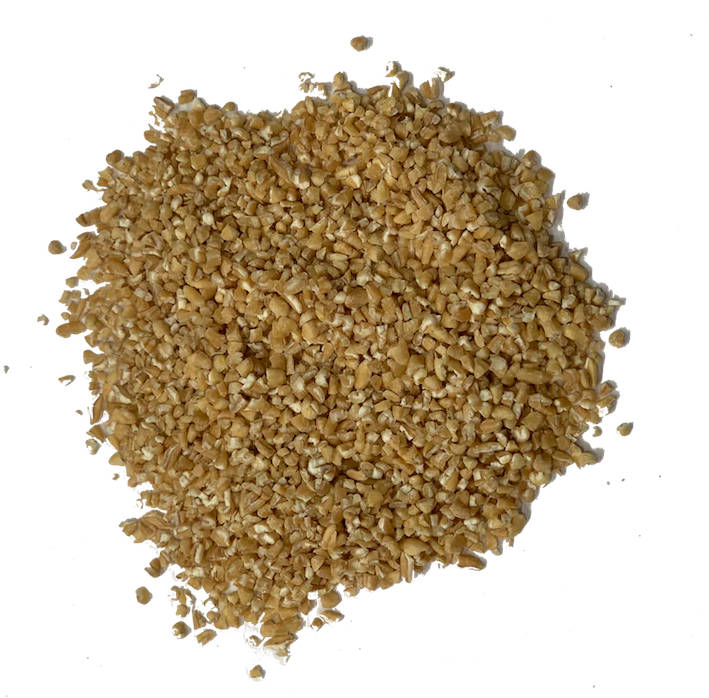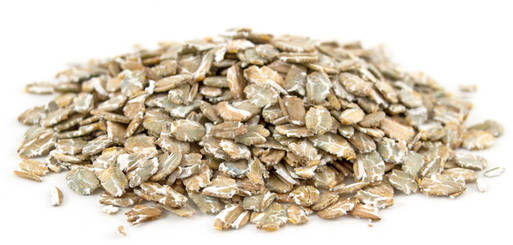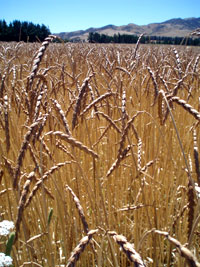Rye
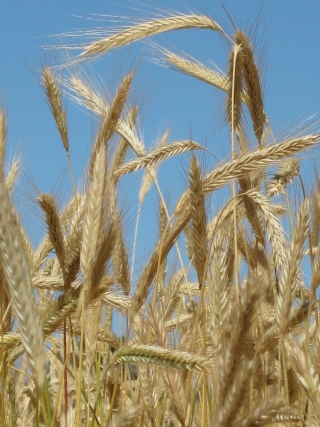
the rye variety on Milmore Downs has developed over 30 years from four main seed sources.
Our rye is popular because it bakes well (typically falling number values are high). However, the baking qualities of rye flour are fundamentally different to those of wheat. This is due to the enzyme constituents - rye flour has amylum destructive amylases which hinders raising and therefore it needs to be baked using sourdough as the raising agent. Pumpernickel, made solely from rye flour and kibbled rye is a well known type of rye bread, but very often rye is mixed into bread made with other grains.
Our rye flour is a wholemeal flour and milled in Zentrofan mills which produced a very finely milled flour. Learn more about our grain processing.
All rye products are BioGro* certified
Nutritional information for rye
|
Nutrients |
AVG Quantity/100g |
| Energy | 318 cal |
| Protein | 10.0 g |
|
Fat |
1.5 g |
|
Carbohydrates |
71.5 g 1.0 g |
|
dietary fibre |
14.1 g |
|
potassium |
0.5 g |
Rye Flour
Known for its earthy, tangy flavour and rich aroma, rye flour is a staple in hearty, rustic bread, such as traditional rye and pumpernickel loaves. Its lower gluten content compared to wheat flour gives baked goods a dense texture, while its organic certification ensures it is grown without synthetic chemicals or GMOs.
Ideal for health-conscious baking, it offers a wholesome and flavourful foundation for diverse recipes.
Rye Grain
Whole rye has a robust, earthy flavour and a chewy texture, making it a popular choice for hearty dishes. Rye grains can be cooked and used in salads, soups, or pilafs, offering a nutty and satisfying base. They can also be sprouted for use in bread or other recipes. When ground, they become rye flour, a key ingredient in traditional breads like pumpernickel and sourdough.
Whole rye grains are valued for their nutritional benefits and versatility, making them a staple in many cuisines.
Kibbled Rye
Kibbled rye refers to rye grains that have been cracked or coarsely ground into small pieces, maintaining much of the grain's original texture. This process allows the rye to retain its bran and germ, making it a nutritious option packed with fibre, vitamins, and minerals. Kibbled rye has a hearty, nutty flavour and a chewy texture, making it ideal for adding substance to various dishes.
It can be used in baking, often added to breads or rolls for a rustic, earthy texture. Additionally, kibbled rye can be used as a base for porridge or as an ingredient in salads, soups, and stews. Its versatility makes it a great alternative to other grains, offering a nutritious and satisfying option for both savoury and baked recipes.
Rye Flakes
They can be used in muesli or granola for a hearty breakfast, added to baking recipes like breads, muffins, and cookies, or used as a thickener in soups and stews. Rye flakes are also an excellent option for porridge or as a topping for yogurt, offering a nutritious and filling option for any meal.
Flakes need to breath, please open bags directly after you receive them.
Buy Our Grain Products
We grow, harvest and process several varieties, all of which are available for purchase from this website.
No products produced by Milmore Downs are fortified with folic acid. (From mid-August 2023, NON-ORGANIC wheat flour suitable for bread making, produced or sold in New Zealand, must be fortified with folic acid.)
